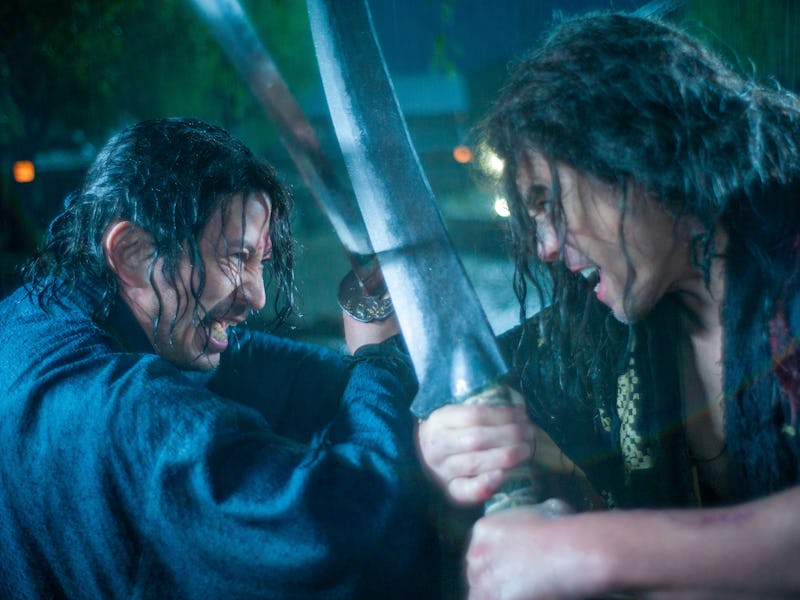From Rollerball and The Running Man to modern takes like Saw and Ready or Not, the “deadly game” subgenre has been popular for decades. The tropes of these stories have found particular success in franchises like The Hunger Games and Squid Game, but you can only replicate a formula so many times before even the best stories feel boring. Thankfully, Netflix just dropped a new take on the story, and it’s pushing the genre into the future by taking it over a century into the past.
Last Samurai Standing is a Japanese action series based on the novel by Shogo Imamura. But unlike The Hunger Games or Netflix’s recent Uglies movie, this isn’t an adaptation of a glitzy young adult series, but historical fiction set in the late 19th century.
The story follows 292 warriors brought together by a newspaper ad promising an enticing 100,000 yen prize. But to win the competition, one warrior must pluck wooden tags from around the necks of all their competitors through any means necessary. At first, it’s an all-out bloodbath, but as contestants form tenuous alliances, they start to question what the game’s purpose could possibly be. Who could want all of the country’s most talented fighters busy hunting down each other? The answer fleshes out the period setting, and adds a political element that the genre often ignores.
The non-English dialogue and appearance of mysterious, high-powered bettors make it tempting to compare Last Samurai Standing to Squid Game, but the more apt comparison is The Hunger Games. Much like that franchise’s ritual sacrifice, the competition is full of people at the top of their game, and many of the thrills come from encountering different fighters with different styles and weapons. It also allows for moments where the human elements of mercy and strategy come into play; it’s not all just playing games and getting shot if you lose.
Even in a winner-takes-all tournament, alliances still happen.
The six-episode Season 1 is only the first chapter of Last Samurai Standing’s greater story, so it’s likely we’ll see another season about the dozens of surviving samurai. But the characters and central mystery we’ve seen so far still cement the show’s place in the deadly game hall of fame, while also being an excellent period drama about an era rarely seen on Western television.
